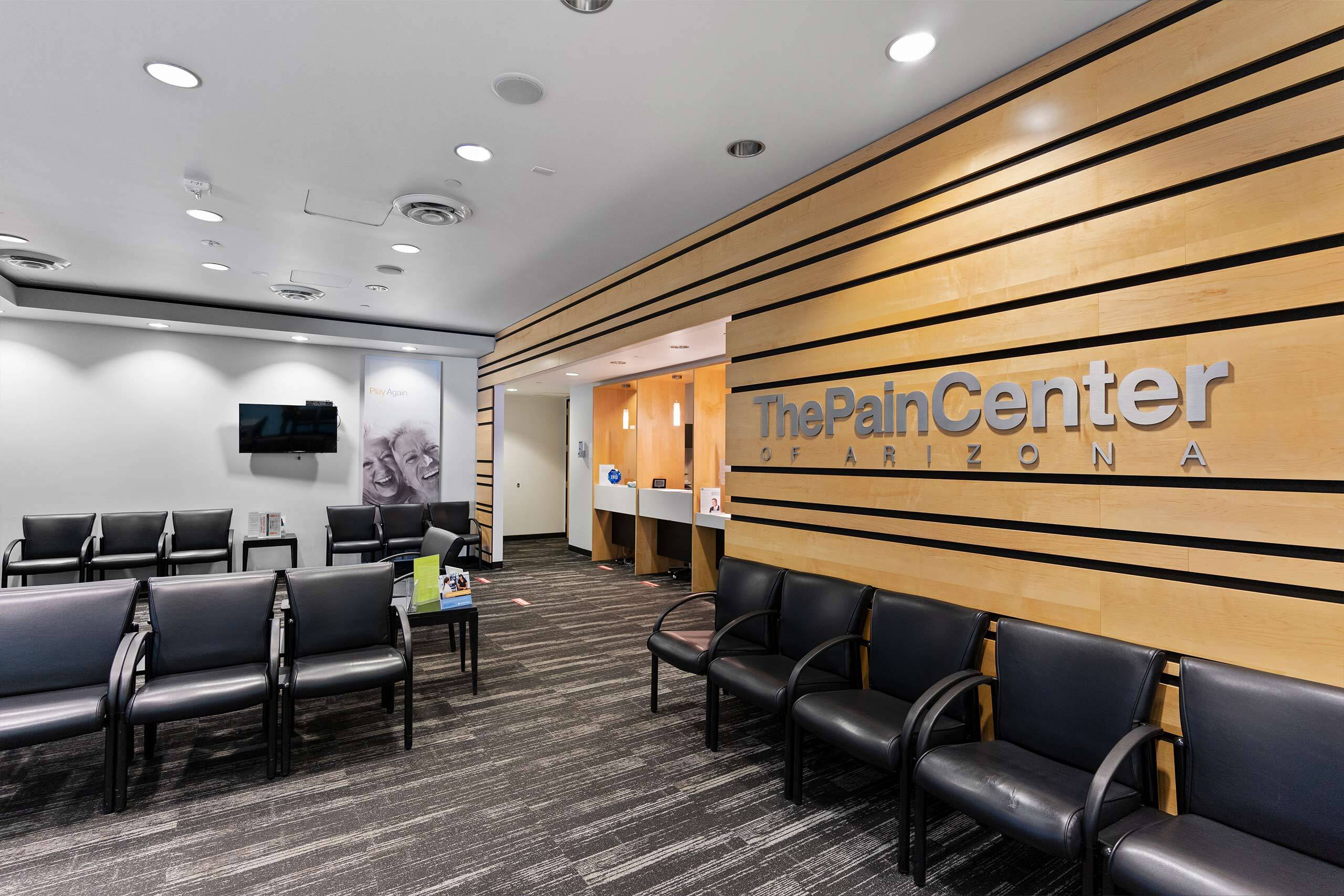Occipital Neuralgia Relief
Do you suffer from occipital neuralgia? Occipital neuralgia is also called occipital neuritis or occipital neuropathy. Sometimes confused with other forms of headache or migraine, the pain of occipital neuralgia is caused by inflammation of the occipital nerves. This pain typically focuses on the upper neck and back of the head, but can extend nearly to the forehead. Proper diagnosis of this condition is important, because the treatment may differ from what might be prescribed for other headaches or migraine.
What is occipital neuralgia?
Typically, patients with occipital neuralgia experience severe pain that can feel like a sharp or electric pain in the back of the head and/or neck. This pain is caused by irritation to the occipital nerves due to injury, inflammation, or other causes. The pain can be triggered very easily, sometimes by just touching the scalp. In some cases, tight muscles can contribute to the irritation of the nerves. Often, there is no clear cause for the pressure on the occipital nerves.
Although it is not life-threatening, occipital neuralgia can cause significant discomfort. At The Pain Center, we can help diagnose occipital neuralgia and offer a range of options to treat your symptoms.

Causes of Occipital Neuralgia
What causes occipital neuralgia? A number of conditions can contribute to the presence of occipital nerve pain, including:
- Cervical disc disease (cervical neuralgia)
- Diabetes
- Gout
- Infection
- Inflammation of blood vessels
- Muscle spasms
- Tight muscles in the neck
- Occipital nerve damage
- Osteoarthritis of the cervical spine
- Trauma (whiplash or neck injury)
- Tumors
- Vascular issues
At The Pain Center, we can help diagnose the cause of your occipital neuralgia to help you find relief.

Occipital Neuralgia Symptoms and Diagnosis
Be sure to inform your doctor of all your symptoms. Symptoms of neuralgia occipital may also include:
- Stabbing pain at the base of the head
- Throbbing or burning pain in theneck or head
- Pain that may be intermittent (come and go over time)
- Feeling of electrical shock to the neck or head
- Aching head
- Sensitivity to light
- Sensitivity to sound
- Tenderness of the scalp
- Pain when moving your head or neck
- Pain on one or both sides of the head
- Pain that can reach almost to the forehead
To diagnose the cause of your pain, your doctor will ask you questions about your health and family history, and do a physical examination. Sometimes, a nerve block can be used at the occipital nervesto see if it eliminates the pain (and confirm the diagnosis). Medical imaging, such as a MRI/CT scan, may be used to diagnose the underlying cause of occipital nerve irritation.
Based on your diagnosis, you and your doctor or pain specialists can work together to determine the best treatment options for you.

How to Treat Occipital Neuralgia
How can you ease the discomfort of occipital pain? You might start by trying conservative home treatments such as applying ice or heat to the neck, resting, massaging tight neck or upper back muscles, and over-the-counter anti-inflammatory medications such as ibuprofen.
Your pain management specialist may prescribe anti-inflammatory medications or muscle relaxants, and may recommend physical therapy as well. In some cases, anti-seizure medications or antidepressants may be prescribed to help calm the occipital nerve.
If conservative treatments do not resolve your pain, the specialists at The Pain Center offer both traditional and state-of-the-art therapies for pain treatment. The pain management specialists may recommend one or more therapies, such as:
Prescription medications such as muscle relaxants
If occipital nerve pain is caused by tight muscles, muscle relaxant drugs can be prescribed to help reduce the tension and stiffness in the muscles.
Pain medication management
Our pain specialists can prescribe and regulate medication to help control your pain. We provide you with the knowledge you need to take your medications properly. The Pain Center takes a conservative approach with medication management. We limit prescription medications whenever possible, to help avoid dependence.
Steroid Injections
Steroid Injections such as corticosteroids can be injected into the site of inflammation to provide pain relief over time. Sometimes an anesthetic is included as well to provide pain relief right away.
Occipital nerve stimulation
A neurostimulator can be implanted, which sends electrical pulses to the occipital nerves to block the pain messages that go to your brain.
Occipital nerve block
An occipital nerve block is an injection therapy that reduces pain caused by the occipital nerve. The injection contains a combination of local anesthetic agents that provide relief that can last from a few weeks to a few months, depending upon your condition.
Rarely, you may be referred to a specialist for microvascular decompression—a procedure that adjusts the position of the blood vessels that are putting pressure on the nerve.

When Further Occipital Neuralgia Treatment is Required
Based on the underlying condition, further treatments may be required to relieve your occipital neuralgia. If there is something that can be addressed by another type of specialist, we will refer you to the appropriate specialty doctor.
Commonly Asked Questions about Occipital Neuralgia
What are the symptoms of occipital neuralgia?
Occipital neuralgia is relatively rare, and affects the nerves that run from the top of the spinal cord to the scalp. Sometimes even touching the scalp can trigger occipital neuralgia, which can be very painful (stabbing pain) for short periods of time. Less severe pain or tenderness may persist over longer durations. The severe pain of occipital neuralgia can be confused with migraine pain. Sometimes, pain occurs more frequently on one side of the head than the other.
What is the best treatment for occipital neuralgia symptoms?
The best treatment for you will depend upon your health situation and the cause of your pain. Your pain specialist will work with you to create a custom set of treatments to help you get relief from your pain. Your pain specialist will give you the information you need to understand and manage your condition.
What can I do at home to help ease my discomfort?
You may find relief at home using heat or ice packs (alternating heat and ice), massage, and over-the-counter pain relievers such as ibuprofen.
Are there alternative therapies neck neuralgia?
Some patients have reported successfully reducing their pain using chiropractic adjustments, acupuncture, or essential oils such as tea tree, rosemary, and eucalyptus oil.
Why do I have occipital neuralgia?
Occipital neuralgia is caused by irritation to the occipital nerve, which runs from the top of your spine to your scalp. The underlying cause of the irritation can vary, from arthritis to injury and beyond. Sometimes there is no obvious cause for the irritation.
Will I need surgery?
There are surgical options for some patients with chronic occipital neuralgia. In some cases, blood vessels can be adjusted to take pressure off the nerves. For patients with irritated nerves from arthritis of the spine, there are surgical procedures that can ease the pressure on the nerve. The Pain Center will refer you to specialists if you require surgery to alleviate the underlying cause of chronic occipital neuralgia.
What tests can be done to discover the source of my pain?
Many times, your doctor can confirm your occipital neuralgia by a physical exam alone. By pressing on the occipital nerves, he or she should be able to determine whether the nerve is the source of your discomfort. To determine the underlying cause of your occipital neuralgia, your doctor may perform tests such as MRI or CT medical imaging. This can help the doctor find any abnormalities in your spine or other causes of your discomfort.


Get the care you need within 24 hours*
We know when you’re looking for relief for your chronic pain, you can’t wait any longer than you already have. This is why we can schedule you with an appointment within 24 hours at most of our pain centers across the Valley, so you can start your journey to life-long pain relief as soon as tomorrow.



